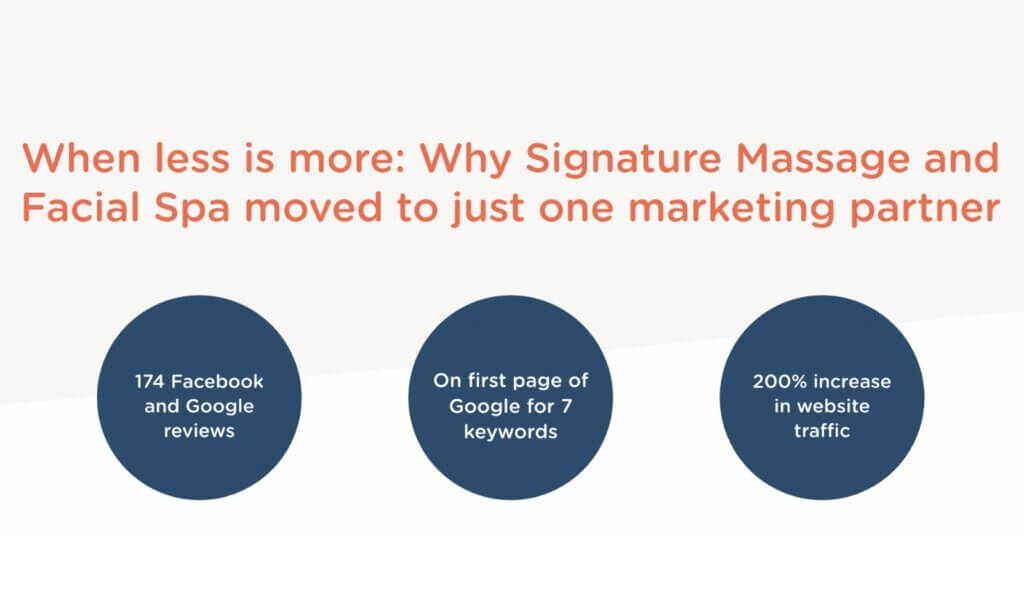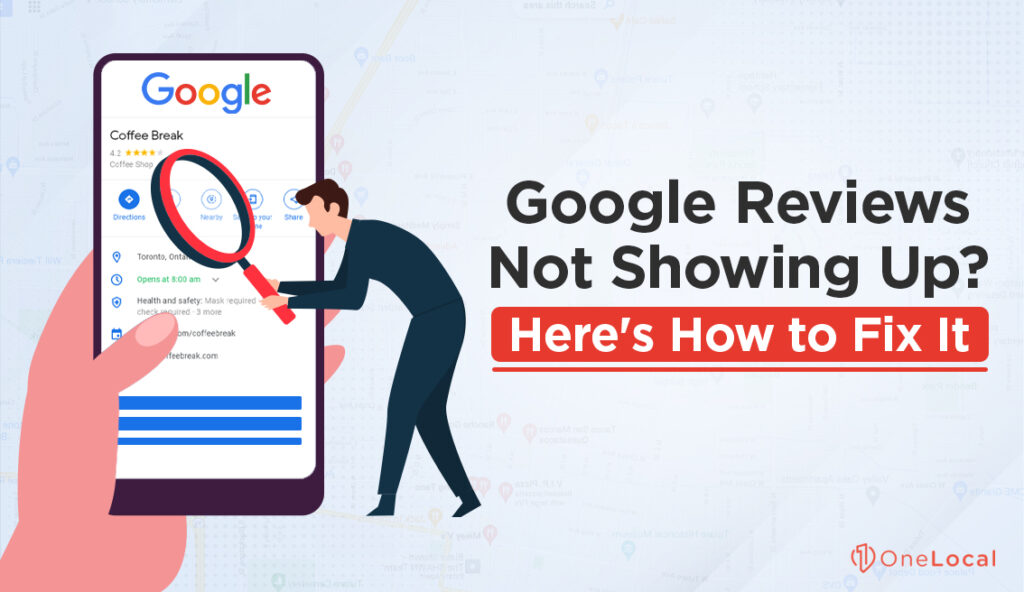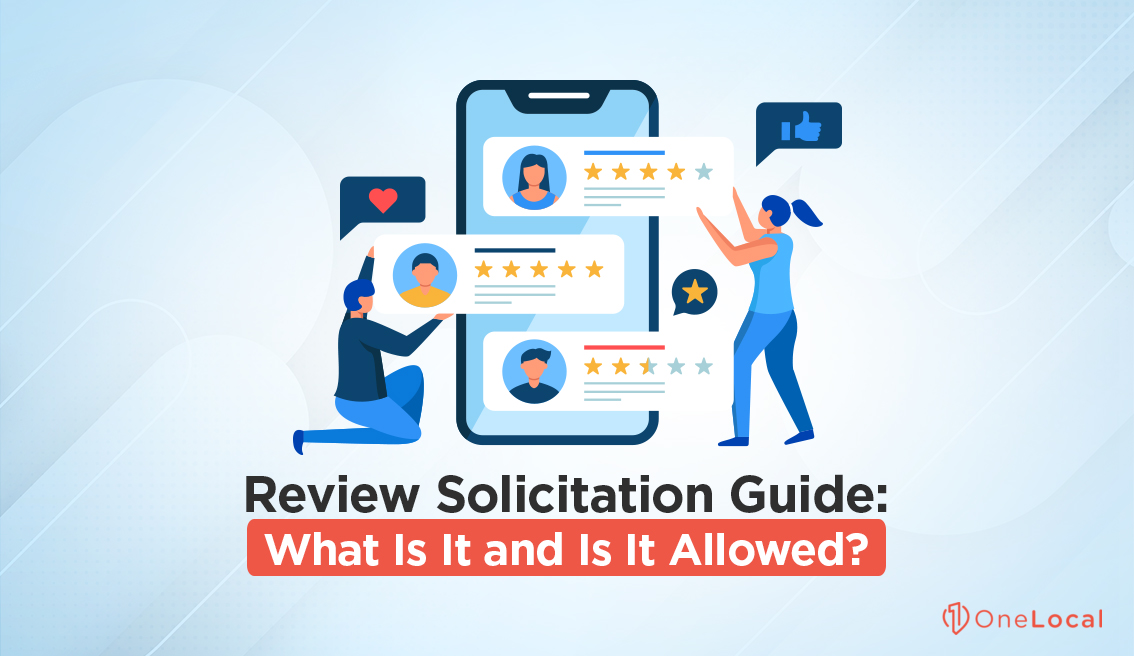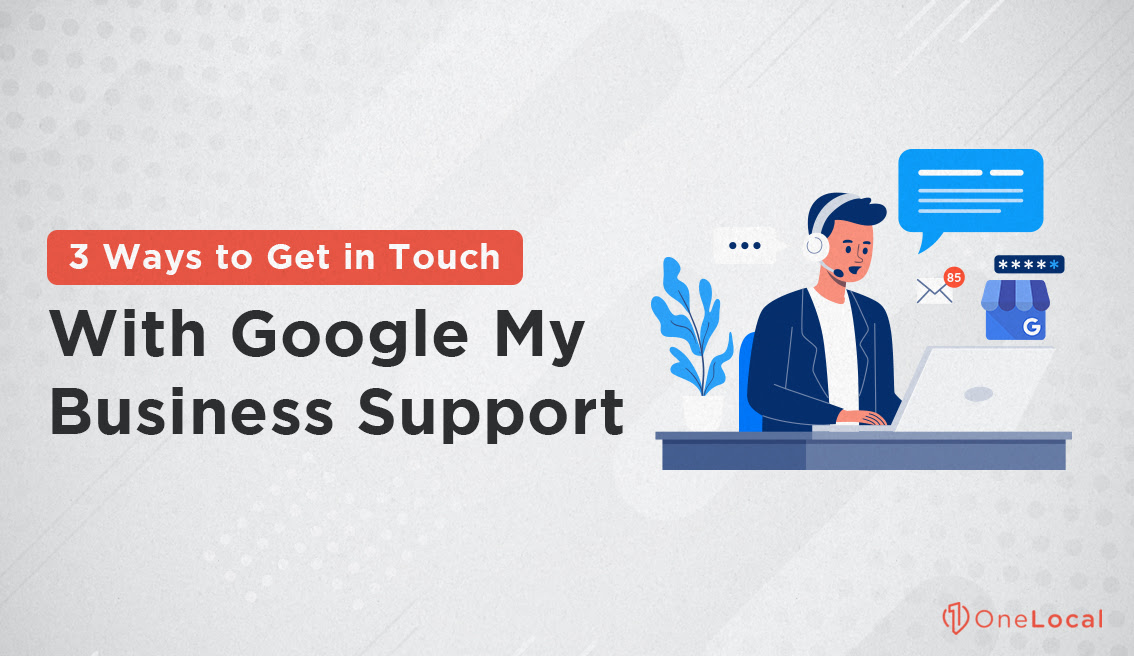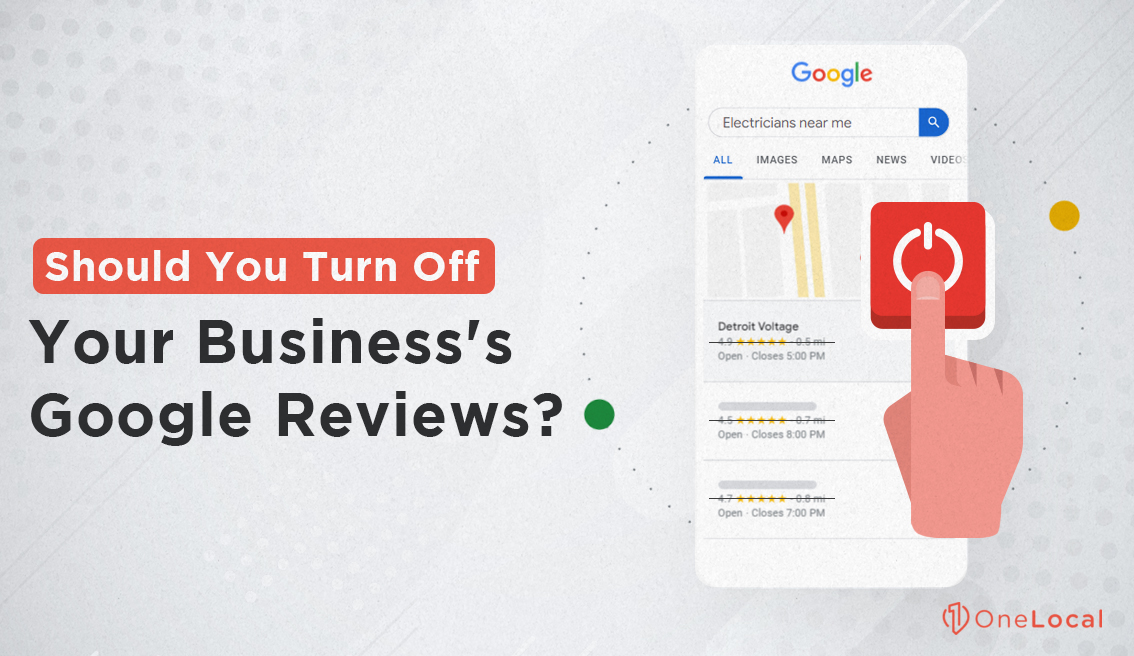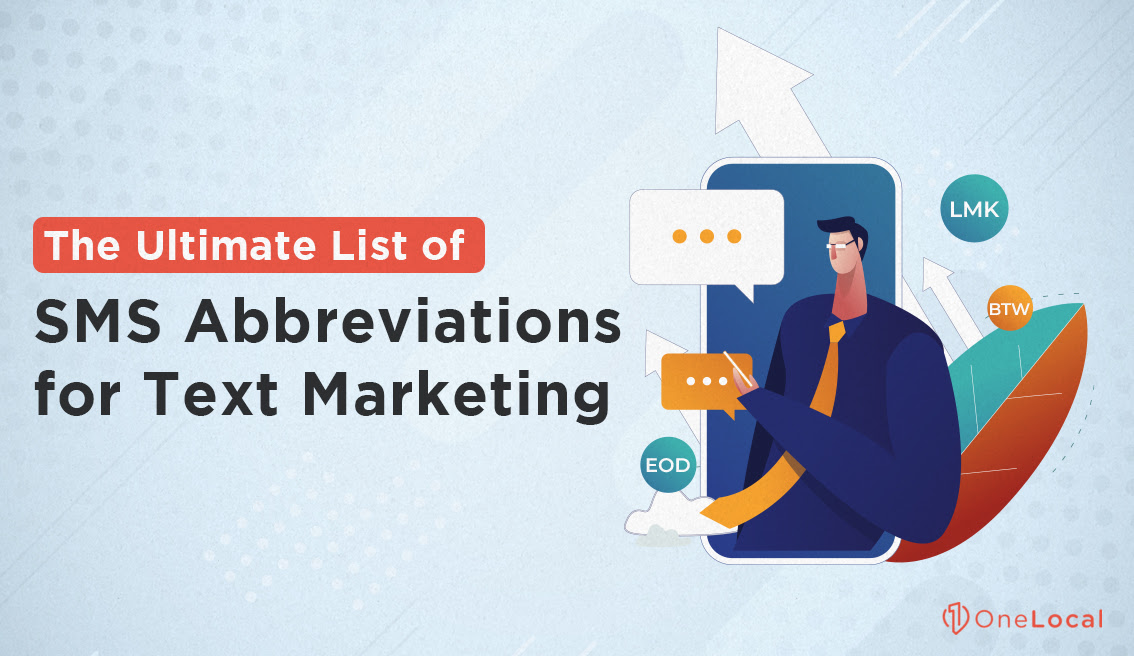Review Solicitation Guide
Part of overall reputation management and brand building is soliciting reviews. You want more reviews of your business and your products. You want them published on sites like Google, Yelp, TrustPilot, and your website as testimonials. You want them to be positive, of course, so they can help convince other people to become customers.
The only question is, is it legal? Can you solicit reviews, or is that a violation of some law or policy somewhere? If you ask for reviews, are you required to disclose that fact? Let’s dig into the situation and find the truth about soliciting reviews.
What Does Review Solicitation Mean?
What is review solicitation? Luckily, this is a pretty simple question.

Review solicitation is asking for reviews. That’s it. Any time you request a customer to leave a review, you’re soliciting them for a review. You can do this directly or indirectly. You can do it individually or as a group. You can do it in positive or negative ways. We’re going to discuss many of those variations further in this article.
Why Should Practice Review Solicitation?
Review solicitation is a good thing for one main reason. The natural human inclination is “the squeaky wheel gets the grease.”
In other words, it’s a lot easier for a person to decide to leave a review when their review is negative. People with a negative experience or opinion of your brand/company/product will want to leave negative reviews to help do their part to warn others away from you.
In many cases, a user wants to like your product or company, so they leave a negative review in hopes that the threat of it damaging your company’s reputation will spur you into action to resolve it with them. It’s a form of socially-acceptable blackmail, really; by holding the company’s reputation ransom, a jilted customer can get a refund, direct customer service, or their issue resolved. Then they can edit their review to be more positive or take it down.

What about satisfied customers or those who have a positive experience with your product or brand? Well, that’s just the default. That’s how things should work. Why would you need to leave a review about that? Many people with positive opinions don’t bother to leave reviews, either because they don’t think it’s noteworthy, or because they don’t think you deserve it (“they were fine, but not that good…”), or because they don’t think about it whenever they would have the opportunity to do so.
That is why many good companies and products end up with mediocre or even negative overall scores; negative experiences breed negative reviews, while positive experiences don’t result in positive reviews nearly as often.
Your business needs to solicit reviews because it’s the primary way to accurately represent your business online.
Is Review Solicitation Legal?
Is review solicitation legal? In a word, yes.
“Legality” in this case refers specifically to federal and provincial or state laws, and in our case, we’re primarily concerned with United States and Canadian law. Laws in many other countries are very similar, though you may want to check with your local laws to see if there are any substantial variations.
In the United States, the Federal Trade Commission primarily governs the legality of reviews. The legislation of concern is the Consumer Review Fairness Act and related legislation. Generally, this boils down to three primary rules.
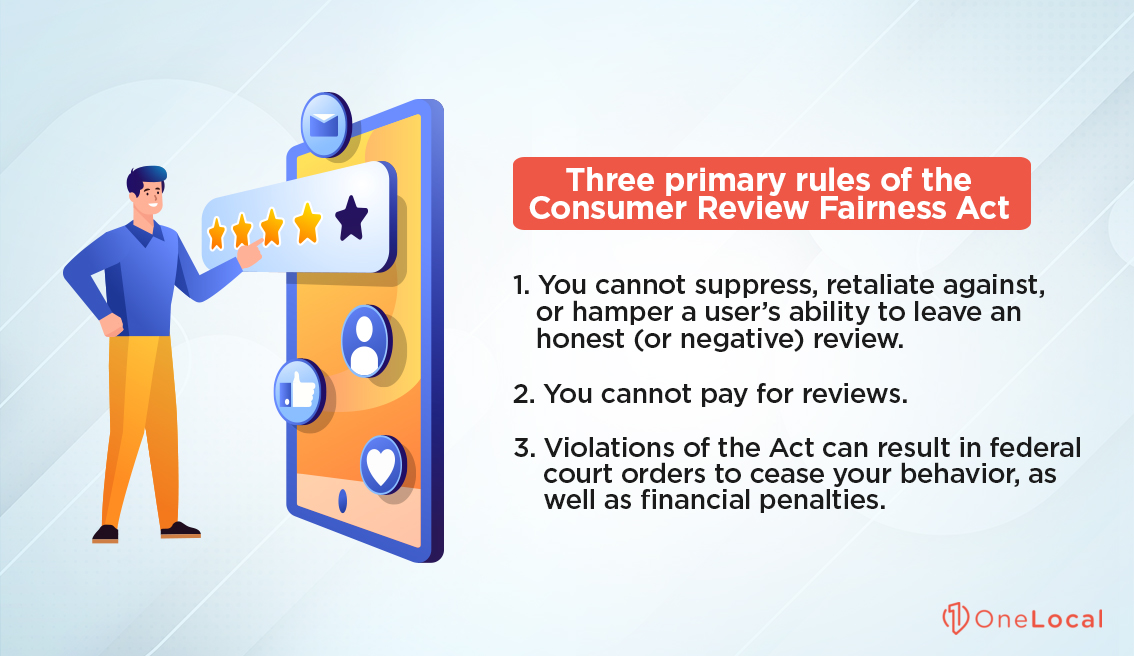
- You cannot suppress, retaliate against, or hamper a user’s ability to leave an honest (or negative) review. No legal threats, no fees, no requirement to give up intellectual property rights, no cancellation of service after a bad review, and so on.
- You cannot pay for reviews. You can pay for sponsored content, but that content must get disclosed as compensated.
- Violations of the Act can result in federal court orders to cease your behavior, as well as financial penalties.
In order to offer some protection to businesses, reviews that contain personal or sensitive information, slander, libel, vulgarity, harassment, bigotry, or other discrimination, are unrelated to the company or its product, or are false or misleading, can be removed. Customers are protected if they have a legitimate negative review, but not if they want to make stuff up to smear a company they don’t like.
In Canada, laws are pretty similar. The Competition Bureau and the Competition Act are the primary areas of concern. Generally, the rules are identical; no defamation, no bigotry, no lies, and no penalties against negative reviewers.
What About Terms of Service?
While review solicitation is legal, there’s one more realm of legality you need to consider, and that’s the terms of service/terms of use for the sites that host the reviews.
Now, if you’re practicing review solicitation for your site, anything goes. However, in many cases, you won’t be. You’ll be soliciting reviews for Google, Yelp, or another review site. All of those sites have their terms of use, and you’ll want to look them over before you embark on any sustained campaign.

Google has a lot of different policies scattered around its terms. For example:
“Contributions must be based on real experiences and information. Deliberately fake content, copied or stolen photos, off-topic reviews, defamatory language, personal attacks, and unnecessary or incorrect content are all in violation of our policy. If you see this behavior, please report it.
We reserve the right to disable user-generated contributions for individual business profiles and business categories to prevent abuse. We also reserve the right to remove content that violates our policies or terms of service, and to suspend or delete abusive accounts.” – Maps User Contributed Content Policy.
“Don’t discourage or prohibit negative reviews or selectively solicit positive reviews from customers. Don’t solicit reviews from customers in bulk.” – Format Specific Criteria.
So, Google allows you to solicit reviews, so long as you don’t do so “in bulk.” What does “in bulk” mean? Think “sending out a mass email to every customer asking for a review” as a bulk solicitation. They prohibit this because it can come across as spam.
Google also prohibits reviews with a conflict of interest. Most commonly, this means reviews left by your employees. Your reviews should come from customers, not people with a vested interest in being positive at risk of, say, losing their job. The same goes for leaving negative reviews of your competitors.
What about for other platforms? Well, Yelp is a good one to illustrate the differences in policies. Here’s what Yelp has to say:
“Yelp’s recommendation software is designed to highlight reviews from people who want to share their genuine experiences—without being asked or tempted.
Proactively asking for reviews may hurt your Yelp rating because our automated software may not recommend reviews that seem to be prompted or encouraged by the business. Also, many businesses only ask happy customers for reviews, which leads to biased ratings. Yelp’s software tries to identify any reviews that appear to have been requested and not recommend them.
This policy is part of Yelp’s Content Guidelines and helps create a level playing field for all businesses who rightfully earn their great reputations on Yelp. It shouldn’t be about who has the time and resources to ask the most people to write reviews. Great Yelp reviews and ratings should come from consumers who had a great experience that they’re inspired to tell others about.” – Yelp Don’t Ask for Reviews.
So, while it’s okay to solicit reviews for Google, it’s not for Yelp. You can read more detail into the rationale (as well as the penalties for getting caught) on Yelp’s blog here.
Is Disclosure Required for Solicited Reviews?
Disclosure is another tricky concept in reviews. When is it required, and when is it not?
Generally, disclosure is only required if there is compensation involved. Compensation can only be involved for sponsored content, not reviews. So:
- A review left on Google Maps can be solicited but cannot be compensated, with or without disclosure.
- A review left on your website can be solicited, but cannot be compensated, per federal laws.
- A blog post reviewing your product can be compensated, and that compensation must get disclosed.
- A blog post reviewing your product can be solicited, and that solicitation does not need disclosure.

In other words, disclosure comes part and parcel with compensation, not with solicitation. If you email a blogger and ask them to give you a review, that’s a solicitation. If you provide them a copy of your product, that’s compensation, and must be disclosed.
That is why you will often see blog posts online about products with a line something like, “Company Name provided us with their product to review, but our review is unbiased; all thoughts and comments are our own and not affected by compensation.” It’s disclosure but meant to minimize the bias inherent in a compensated review.
Again, though, this is primarily the realm of blogs and marketers. You can’t compensate for a review on a platform like Google, so it doesn’t matter.
What to Do (And What to Avoid) When Soliciting Reviews
If you want to try review solicitation, you can, but you need to follow some guidelines. Luckily, we make it easy, or at least easier for you.
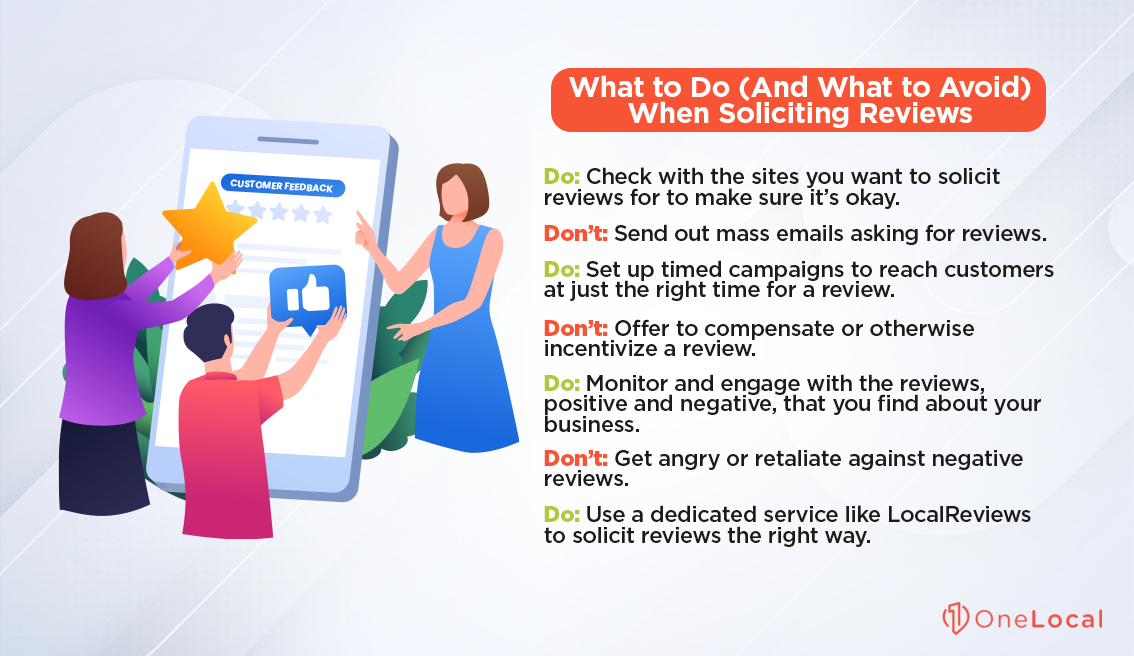
Do: Check with the sites you want to solicit reviews for to ensure it’s okay. We covered Yelp and Google here, but there are many other sites you might consider soliciting reviews for, like the BBB, Facebook, TripAdvisor, TrustPilot, and more. Any business paying attention to reviews will likely have at least a dozen such sites they actively monitor and more they check periodically. It all depends on where your audience is.
Don’t: Send out mass emails asking for reviews. Sometimes, businesses panic when they see negative reviews and want to build as many positive reviews as they can. The temptation to send a message to your whole newsletter subscriber base asking for a review is strong, but you have to resist it. Also, if you ever hire a reputation management company, and they recommend doing so, drop that contract.
Do: Set up timed campaigns to reach customers for a review at just the right time. The best way to get a good review is to remind the user to leave a review at just the right time. This time can vary from business to business but will be an average for how long it takes a product to ship and for the user to start to use it. That can be anywhere from a couple of days to weeks. For online products, you can also monitor user actions and see when they start to use your product. Reach out then, asking for a review when they’re in the midst of actively using your product.
Don’t: Offer to compensate or otherwise incentivize a review. Any form of compensation, even if it’s just a free month of subscription, a gift card, or rewards points, can be considered an incentive and violate policies and laws.
Do: Monitor and engage with the reviews, positive and negative, that you find about your business. One of the best ways to encourage more positive reviews is to make it clear that you’re present and actively reading the reviews you find. You can also reach out to some users who leave good reviews and ask if they’d be willing to post them elsewhere or let you use them on your site.
Don’t: Get angry or retaliate against negative reviews. Any retaliation, whether it’s criticizing the user in the replies to their review, or canceling an account, can be considered a suppressive action. While it’s rare, you can still be penalized by the relevant government organization for doing it, especially if it happens regularly.
Do: Use a dedicated service like LocalReviews to solicit reviews the right way. LocalReviews is a time-tested and proven process for soliciting great reviews for Google, guaranteed to follow their policies and build positive reviews without putting your account at risk. Be sure to give it a look and let us know what you think!

Rachel Solway is a seasoned marketing professional dedicated to empowering small businesses through innovative marketing strategies. With extensive experience at OneLocal, a leading marketing solutions provider, Rachel’s insights are helping thousands of local businesses navigate the digital landscape.


